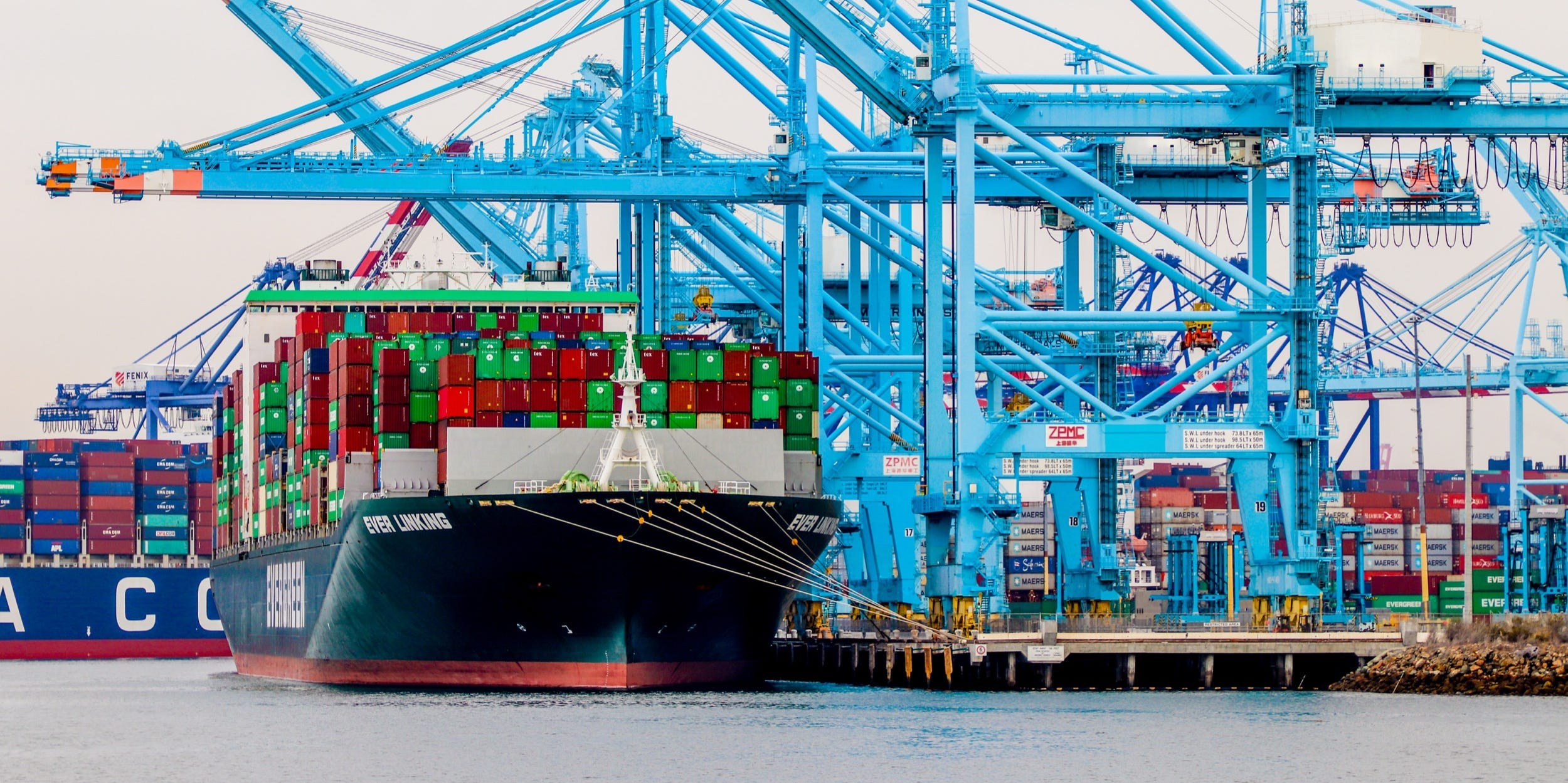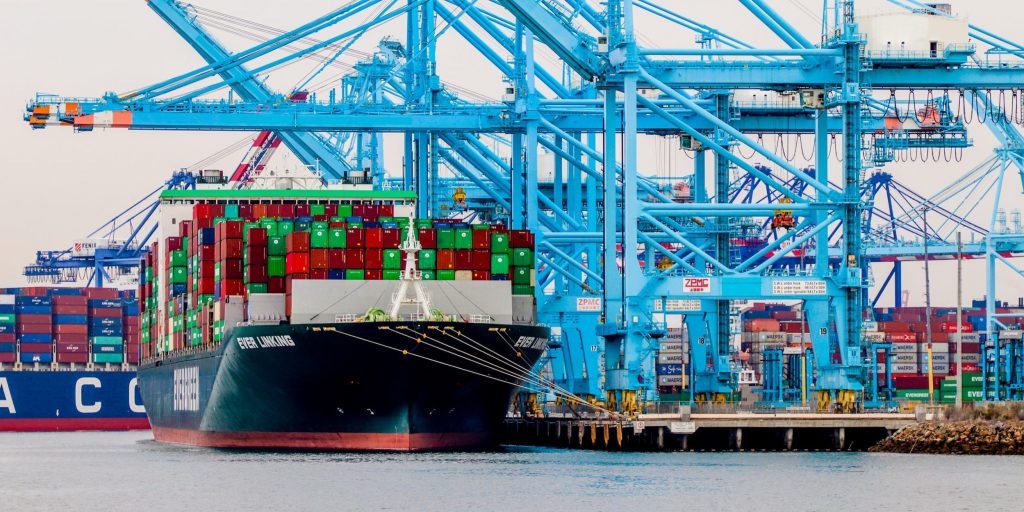
- The White House blames shipping companies for inflation and supply-chain issues.
- "Price-gouging by the ocean shipping cartel" has fueled inconvenience and inflation for Americans, the Biden administration said in an email to reporters.
- The message is the latest step by the White House to shift blame and ease concerns around heightened inflation ahead of the 2022 elections.
Shipping companies' greed is fueling the global supply-chain crisis, according to the White House.
Democrats are scrambling to solve the supply-chain nightmare as the holiday shopping season ramps up and the party looks ahead to midterm campaigns. Shipping backlogs, truck-driver shortages, and port bottlenecks have driven inflation to three-decade highs as businesses struggle to fulfill orders from Americans who are spending a ton right now. The White House has rushed to solve the tangle with fines for sitting containers and calls for around-the-clock work at key ports. Republicans, meanwhile, are using the supply problems to hammer Democrats ahead of the 2022 elections, saying Biden's struggles with inflation are "a gold mine for us."
The Biden administration took new action to shift blame and ease concerns ahead of the Thanksgiving holiday. A Wednesday email to reporters detailed "three quick points on supply chain progress" that countered the narrative of a worsening crisis. Among them was a shot across the bow of the shipping companies that make up the backbone of the world's supply chain. While the administration didn't single out specific companies, some of the most prominent names in the industry include Maersk, COSCO, and Evergreen. Broadly, the shipping sector saw profits hit a record $48.1 billion in the third quarter of 2021.
"The cartel of shipping companies that control the terms of global trade have never been more profitable," the White House said. "In the third quarter alone, they made $48 billion, which is nine times more than they made the year before."
The message serves as the administration's latest push to link rising prices to corporations. President Joe Biden called on the Federal Trade Commission earlier in November to investigate potential "illegal conduct" at oil and gas companies, alleging the firms were raising gasoline prices to boost profits. The administration has also urged the Federal Maritime Commission to ensure fair competition in the naval shipping industry.
Both efforts aim to cool the inflation that's eroded Biden's approval rating. While the recovery is booming again, soaring prices have Americans feeling the most pessimistic toward the economy in a decade. The gloomy outlooks are largely fueled by worsening inflation and "the absence of federal policies" to slow price growth, Richard Curtin, chief economist at the University of Michigan's Surveys of Consumers, said in a Wednesday statement.
The White House directly linked heightened inflation to private industry in the email, saying much of the supply-chain pain is a product of shipping companies' greed.
"The congestion that has caused inconvenience and inflation for the rest of us has been a source of price-gouging by the ocean shipping cartel — price hikes that are part of the inflation," the administration said.
The supply-chain tangle is already being solved, White House says
At the same time, the White House eased fears that the shipping backlogs would hammer holiday-season spending. The Wednesday email highlighted companies' recent statements downplaying worries of supply shortages, including Best Buy's chief financial officer saying the company is "extremely well-positioned" to handle the busy sales months.
And while the administration denounced shipping companies' actions, it noted that the logjams at ports are already being reversed. The number of containers sitting for more than nine days at the Ports of Los Angeles and Long Beach has been cut by more than a third since the White House imposed daily fines, the administration said. A push to clear containers and trucks faster has also sped up processing times for shipments.
The rosy outlook is shared by economists at some of Wall Street's biggest banks. Jefferies economists said in October that the US economy is likely "past peak pinch" and should see "significant improvement" to the logistics mess in 2022. Data out last week "may be the first fruit of the modest easing in supply chain issues," JPMorgan said in a Wednesday note.
If Wall Street is right, it may be a matter of months before Democrats can breathe a sigh of relief over the supply-chain crisis. Whether that's enough to sway voters is a different story.

